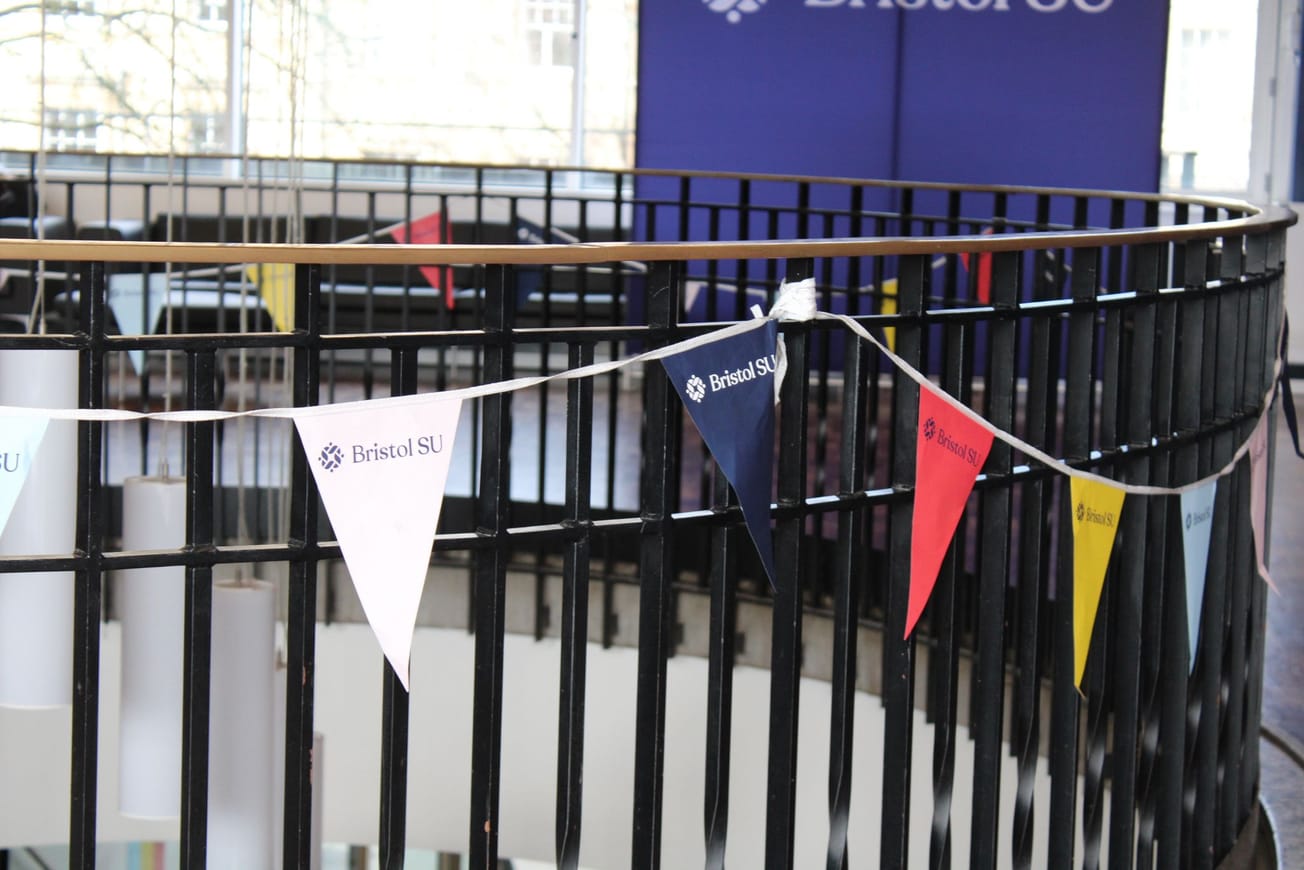By Ingrid Colusso, First Year, Law LLB
In 2022, the University of Bristol ranked number 68 out of 80 universities in the mental health league table. Whilst nearly a third of first year students in England show signs of depression, this statistic suggests that the mental health services at the University of Bristol are insufficient at providing the necessary support. So how accurate is this picture?
The start of university and the pressures of studying for a degree are key contributory factors leading to poor mental health. According to the National Institute for Health and Care Excellence, this is due to the effects of moving away from home, the academic and financial pressures of university and the absence of familiar social and emotional support networks.
The consequences of poor mental health can be detrimental if left unsupported. Students may endure poor academic performance, drop out of university, or resort to self-harm and suicide. As such, it is crucial that students have satisfactory mental health services to turn to when required.
In 2018, the university implemented it’s ‘Mental health and wellbeing strategy’, which established the Residential Life service - which provides essential 24-hour support within halls of residence - created Wellbeing Access as a single clear route to wellbeing support, and introduced ‘one at a time’ counselling which has reduced waiting times for therapeutic support.
Bristol University is proposing to drastically cut its wellbeing services. Staff are facing the prospect of redundancy to make space for a more "efficient" process. And just when so many students are seeking mental health and wellbeing support. https://t.co/o1XSaeEo41
— Rebecca Buxton (@RebeccaBuxton) June 12, 2024
The University has continued to build on proactive and preventative activity to improve their mental health services. In 2022, the university updated their Mental health and wellbeing strategy and pledged to ‘Further develop focused support at key points of transition into, during, and out of university; and at all points during the student journey where there may be an increased need.’
Among other measures, this will include initiatives to encourage healthy behaviours in collaboration with the Bristol SU, evolved online learning support and a variety of sport and physical activity offers. The university will ‘Provide clear communication early on so that students know from the start of their university experience where to go and who to talk to if they need support’ and ‘grow and strengthen our measures to promote mental health and wellbeing at other key points such as in the transition between years, from undergraduate to postgraduate study, or out of University into employment.’
In 2022, the University of Bristol became part of the Student Minds University Health Charter Programme, which sets principles universities can commit to working towards to improve the mental health and wellbeing of their communities. Later that same year, Bristol became one of first universities to receive the University Mental Health Charter Award, suggesting that there has been a clear improvement in their approach.
Inclusion is at the heart of making impactful research. @EBIBristol and @BristolBRC are at the forefront of the University of Bristol’s mental health research. Here is the first in a series of films showing the depth and breadth of our #mentalhealth research. pic.twitter.com/vyjkKyPl0a
— Elizabeth Blackwell Institute (@EBIBristol) May 20, 2021
Epigram spoke to students that have accessed the mental health services at Bristol University to gauge what their personal and practical experiences have been.
One student, who wished to remain anonymous, ‘found the mental health services at Bristol very accessible, especially since their information is everywhere around campus’ and found it ‘useful’ that they were able to ‘fill out an online form instead of having to initially reach over the phone.’
For them, the counselling services model was ‘helpful’ as to receive the counselling was a ‘very quick process.’ However, there was a feeling that it was only helpful ‘initially’, as they were able ‘to talk about things [they] hadn’t really spoken about before’ – but there was a ‘point of stagnation where counselling didn’t really work anymore.’ At this point, the ‘only option other than getting put on waiting lists for alternative services outside of the university was medication, which was perhaps given a little too quickly.’
"It would’ve been nice to actually speak to someone earlier on in the process"
For this student, they would only use the counselling services at Bristol again for ‘more low-level conditions’ as they do not think staff are ‘specialised enough to deal with more severe cases, but do have the ability to signpost students to other alternative services.’ Therefore, they believe that ‘a call/meeting with a wellbeing officer will always be helpful, regardless of the situation.’
Overall, the student commented that: ‘the issues with the mental health services at the University is the level of specialisation and signposted services having really long waiting lists’ but that this ‘is an issue with mental health services in the UK as a whole.’ Therefore, in their opinion, the University could ‘perhaps expand their team in terms of having more specialised counsellors, or maybe playing a more active role in the organisations they often signpost students to in order to get waiting times down.’
Another student agreed that ‘the steps to find the resources were easy enough’, but that they ‘wish that the steps were more person-focused, as often filling out a form didn’t paint an accurate picture of what I was struggling with, and it would’ve been nice to actually speak to someone earlier on in the process.’
"More than anything, I think [the university mental health services] need to listen more"
They found that there was a ‘blanket offer of services, such as a basic counselling service, but nothing specific or entirely helpful.’ When asking for help with issues of childhood sexual assault and C-PTSD, this student was referred to reporting services and medical resources, which they had already accessed previously, so ‘it felt like they hadn’t really listened to my concerns, and instead had acted on trigger phrases to provide solutions that weren’t helpful.’
In their experience, they ‘didn’t find [the services] very useful at all’. Their issues were labelled as ‘too complex for the level of counselling that could be provided’ and the student was informed that ‘the team might not be qualified to help with the severity of the issues.’
Since then, they have relied on personal and senior tutors as well as private services as they ‘couldn’t access the university services adequately.’ The student elaborated on their experience:
‘More than anything, I think [the university mental health services] need to listen more’ and ‘be able to provide more appropriate support or, if it really is too complex, to provide better signposts to alternative solutions.’ Finally, they added that they should ‘do more than faceless phone calls from unknown numbers’, as for an anxious person ‘it felt incredibly impersonal to be contacted that way.’
These mixed experiences paint differing views of how effective the mental health services at the University of Bristol are but, inevitably, highlight some overlapping issues – such as how the services are not sufficiently equipped to deal with more complex issues. However, there has still been effective support offered that has been beneficial to some students.
Your invaluable support has brought us here; now, we need MPs to hear us. Stand with the bereaved mothers of our campaign. Write to your MP today - https://t.co/Y49MKrYxml… #ForThe100 💛 pic.twitter.com/xOmUzgRsFg
— ForThe100 (@ForThe100_) June 4, 2023
The ‘Forthe100’ is a national campaign and community network group which is calling for universities to implement a statutory duty of care to their students.
This would provide a legal standard which would, in turn, raise the adequacy of mental health services offered by the universities. For the campaigners this encourages a ‘sensible and justifiable obligation on institutions and their staff’ which could better the practical experiences of students, allow for more effective support to be provided to students struggling with their mental wellbeing.
‘We want to redefine what it means to be state-educated in the UK’ | Sophie Pender on the future of the 93% club, her time at UoB and the reality of the state/private school divide
Mental health awareness week | In conversation with Bristol Nightline
If you need any support for your wellbeing, do reach out to the university services, tutors or your peers, as it is always useful to talk about any situations you may be going through. Through this, you can find different ways to manage your mental wellbeing and discover what approach works best for you.
Featured image: Epigram / Dan Hutton









